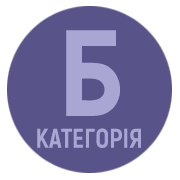METHODS AND DIRECTIONS OF RESEARCH IN THE CONTEXT OF MODERN LINGUISTICS: PROBLEMATIC ISSUES
DOI:
https://doi.org/10.32782/philspu/2025.11.13Keywords:
linguistics, research method, methodology, linguistic research, fundamentals of scientific research, methodology of scientific researchAbstract
In the article, based on the analysis of works on the methodology of linguistic research, the current problems of 21st-century linguistics have been outlined, and modern research tools have been defined. It is established that today, scholars pay special attention to the latest directions in linguistics, the correlation between methodology and research methods, and the definition of criteria for their classification.A controversial question of modern linguo-methodology is the distinction between the concepts of method, technique, methodology, approach, and procedure: their use as synonyms in some scientific works complicates their understanding and leads to inconsistencies in classification. The application of the dictionary definitions method enabled the determination of differences in the meaning of the terms «method» and «methodology» from the point of view of philosophy and linguistics: method is a way or a system of techniques that is applied during language research; methodology is a system of methods, principles, and approaches applied to the organization and implementation of a specific theoretical or practical activity.It has been defined that the issue of systematising scientific methods is relevant not only for modern linguistics but also for other fields of science. A variety of classifications of research methods, particularly linguistic ones, has been observed, which is caused by different approaches to the study of the phenomenon of language. According to the time criterion, the psycholinguistic, distributional, statistical methods, the method of component analysis, and the modeling method are considered modern and currently the most applied in linguistics, as well as corpus technologies method and algorithmisation of language models using AI.No single method is capable of encompassing the complexity of a phenomenon such as language. Therefore, by using different approaches that complement one another, researchers are able to study language more fully and objectively as a multifaceted phenomenon.
References
Badr A. Principles of Scientific Research and its Methods. 9th edition. Cairo, 1996.
Chenikhar N. The Significance of the Problematic in Ensuring Scientific Research Quality. Social Sciences and Humans Review. 2025. Vol. 18. Issue 01. pp. 107–124.
Demyanchuk Y. Methodology of philological study: the new direction in applied linguistics. Multilingualism and Multiculturalism. Kutahya Dumlupınar University, 2024. pp. 38–54. URL : https://surl.li/buwyfn (дата звернення : 12.08.2025).
Загнітко А. П. Сучасний лінгвістичний словник. Вінниця : ТВОРИ, 2020. 920 с.
Словник з основ наукових досліджень / уклад. : Н. Ю. Мацай, С. В. Маслійов, Є. В. Попов та ін. Старобільськ, 2021. 80 с.
Велика українська енциклопедія / уклад. : Арістова А. В., Шліхта І. В. Київ : ДНУ «Енциклопедичне видавництво», 2019. 256 с.
Українська мова : енциклопедія. Київ : Видавництво «Українська енциклопедія», 2007. 856 с.
Amor S. Linguistic research in light of modern linguistics. Akofena. 2024. Vol. 05. No. 012. pp. 173–188. URL : https://surl.li/uwcbcp (дата звернення : 15.07.2025).
Андрейчук Н. І. Антропоцентрична парадигма сучасної лінгвістики : ідеологія і програми досліджень. Лінгвістичні студії : зб. наук. пр. Донецьк : ДонНУ, 2008. Вип. 17. С. 273–278.
Errington J. Linguistics in a Colonial World : A Story of Language, Meaning, and Power. Oxford : Blackwell Publishing LTD, 2008. URL : https://surl.li/liivpy (дата звернення : 07.08.2025).
Crystal D. Philology. Encyclopedia Britannica. 2023. URL : https://www.britannica.com/science/philology (дата звернення : 10.08.2025).
Лучик А., Надутенко М. Класифікація методів наукових досліджень у працях С. І. Дорошенка на тлі сучасної лінгвістичної науки. Лінгвістичні дослідження : зб. наук. праць. Харків, 2024. № 60. С. 20–27.
McMillan J. H., Schumacher S. Research in Education : Evidence-based Inquiry (6th edition). Boston : Allyn and Bacon, 2006.
Mansfield J., Wilcox E.C. Looking forward : Linguistic theory and methods. Oxford : Oxford University Press, 2025. URL : https://surl.lt/fjdyhm (дата звернення : 05.08.2025).
Широков В. А., Лучик А. А. Парадигмальні засади лінгвістики першої половини XXI століття. Мовознавство. 2021. № 5. С. 3–16.
Методологічні основи сучасних лінгводискурсивних досліджень / уклад. Ю. П. Бойко. Хмельницький : ХНУ, 2021. 72 с.
Борисенко Н. Д. Методика проведення наукових досліджень. 2-ге вид. Житомир : Вид-во ЖДУ, 2024. 74 с.
Ревуцька С. К., Зінченко В. М., Герасименко О. Ю. Методологія лінгвістичних досліджень в цифровому середовищі : курс лекцій. Кривий Ріг : ДонНУЕТ, 2022. 151 с.
Методи лінгвістичних досліджень : навчальний посібник / упоряд. Н. А. Цимбал. Умань : Візаві, 2019. 106 с.
Черник М. В., Куліш В. С., Овсянко О. Л., Зінченко А. В. Методологія лінгвістичних досліджень : конспект лекцій. Суми : Сумський державний університет, 2018. 78 с.
Селіванова О. О. Засади сучасної лінгвометодології. Мовознавчий вісник : зб. наук. праць. Черкаси, 2007. Вип. 5. URL : http://oldconf.neasmo.org.ua/node/581 (дата звернення : 10.07.2025).
Селіванова О. О. Сучасна лінгвістика : напрями та проблеми : підручник. Полтава : Довкілля-К, 2008. 711 c.
Загнітко А. П. Сучасна лінгвістика : погляди та оцінки. Донецьк : ДонНУ, 2014. 464 с.
Глущенко В. А. Лінгвістичний метод і його структура. Мовознавство. 2010. № 6. С. 32–44.
Надутенко М., Надутенко М. Цифрові методи та штучний інтелект у мовознавчих дослідженнях. Матеріали Всеукраїнської наукової конференції «Мовний простір сучасного світу». Київ : Національний університет «Києво-Могилянська академія», 2024. С. 127–133.
Belaid S. Lessons in applied linguistics. Fourth edition. Algeria : Dar Houma, 2009.
Конкретно-наукові методи лінгвістичних досліджень : методичні рекомендації / уклад. Алексенко С. Ф. Суми : Сумський ДПУ імені А. С. Макаренка, 2020. 44 с.








